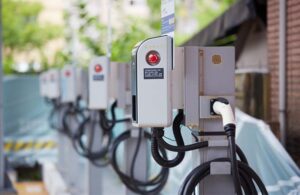Finland-based mobile charger manufacturer, Salcomp has announced its plans to expand its Indian manufacturing business not only for mobile phones but also for EVs and renewable-related electronics.
 This move will help in capitalizing India’s roadmap to building a self-reliant electronics ecosystem.
This move will help in capitalizing India’s roadmap to building a self-reliant electronics ecosystem.
Sasikumar Gendham, Managing Director of Salcomp Manufacturing India, commented that the world’s largest manufacturer of mobile phone chargers and a major supplier of iPhone chargers would introduce new products, including EV chargers, solar microinverters, and hydropower electronics equipment and components, adding that India’s plan to standardize EV battery specifications would be a boost for India’s battery manufacturing localization.
Gendham’s statement was an elaboration of what Salcomp had announced in February about its Indian expansion plan, according to which the company would double its Indian workforce from 12,000 to 25,000 in three years, targeting annual revenue in India of US$2-3 billion by 2025.
Gendham said that India planned to reach US$300 billion in revenue from electronics by 2026, and Salcomp would aim to clock 1% of it.
The US$300 billion goal was first revealed in India’s ‘2nd Volume of Vision Document on Electronics Manufacturing’ by the Ministry of Electronics & IT of India in January 2022. According to the document, mobile phones, laptops, and tablets are expected to account for half of India’s electronics production by fiscal 2026 (April 2025 to March 2026).
India accounts for one-fifth of Salcomp’s global manufacturing capacities for mobile phone chargers. Salcomp manufactures its products in Sriperumbudur, Tamil Nadu.
Besides Salcomp, other Apple suppliers are increasing their investments in India amid a global supply chain diversification wave.
It was earlier reported that Foxconn would quadruple its workforce in Tamil Nadu from 17,000 to 70,000 in two years.
However, since the Ministry of Finance of India announced a plan to launch standards for interchangeable swappable batteries, the EV industry is waiting for the Indian government to unveil its battery-swapping standards.

